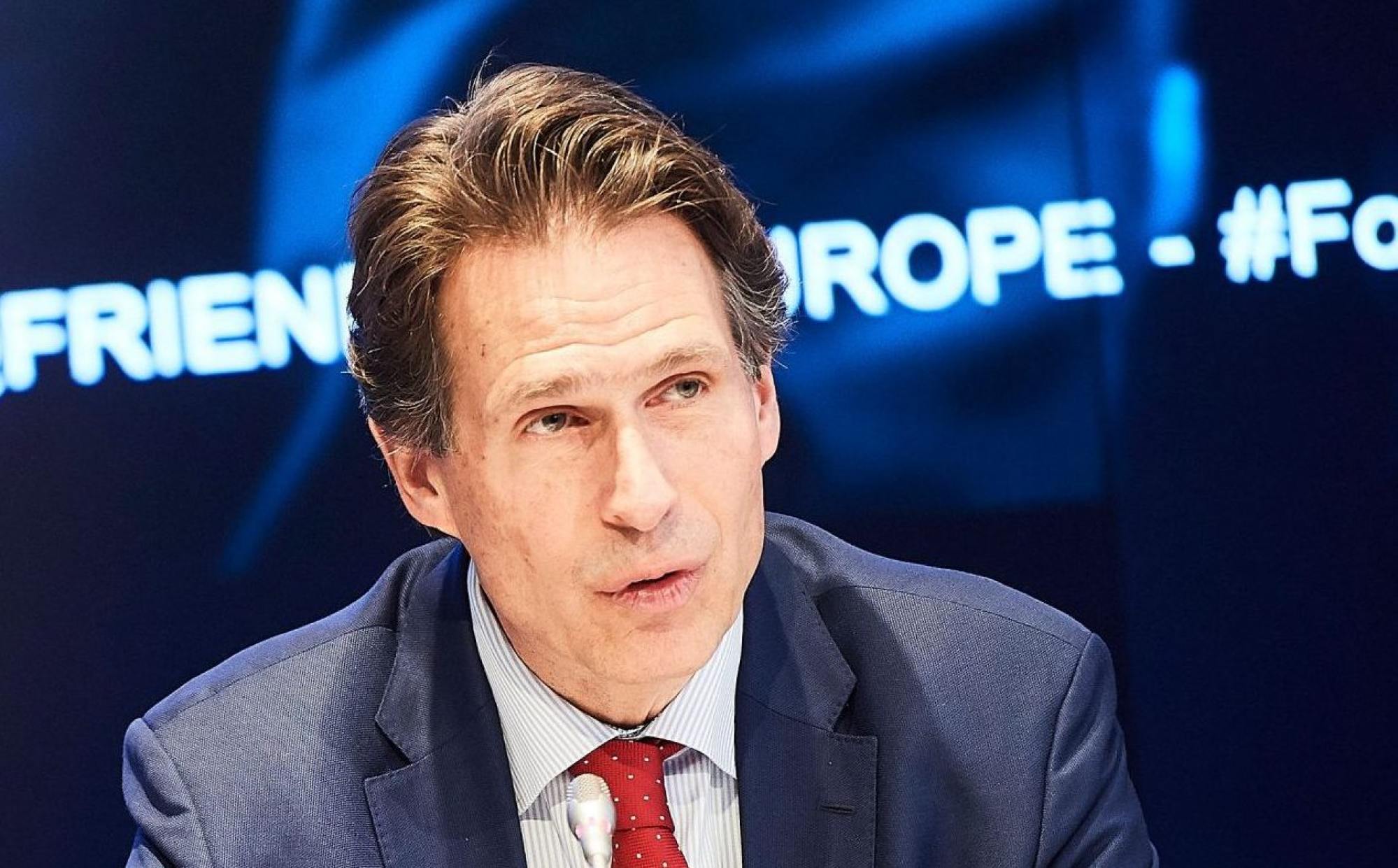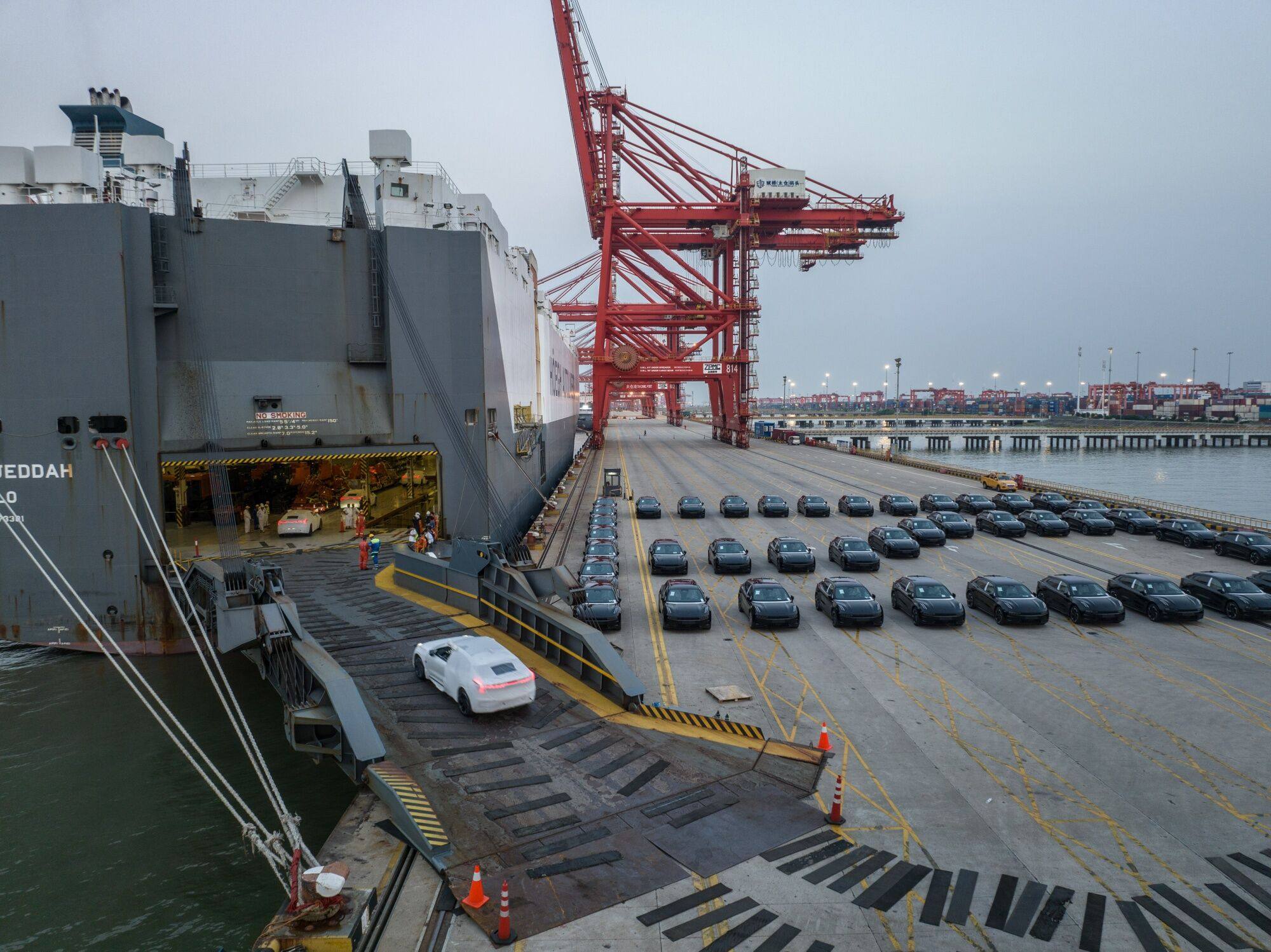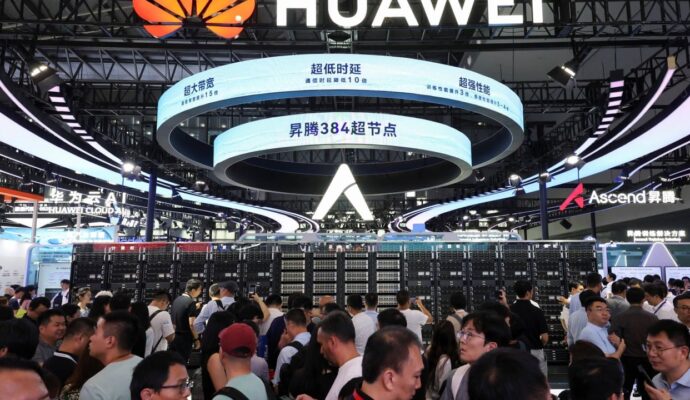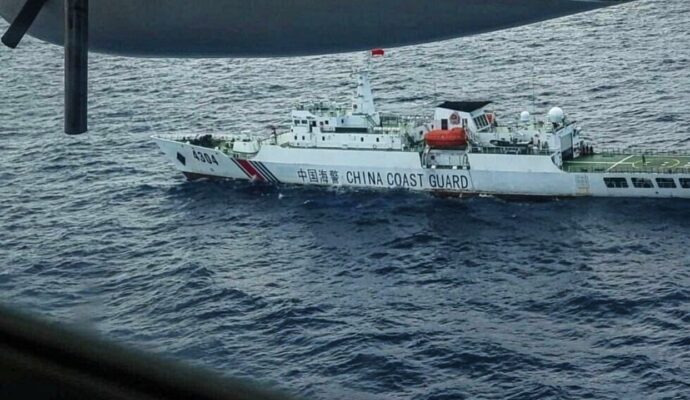The statement was signed just weeks after the EU first designated China a “systemic rival”, giving Brussels leverage in negotiations, according to people involved in the talks. But four years on, it provides a perfect illustration of how far ties have slipped.
EU set to ask Xi to stop Chinese firms getting around sanctions on Russia
EU set to ask Xi to stop Chinese firms getting around sanctions on Russia
So when leaders sit down for a day of talks in Beijing on Thursday, there will be no joint statement. Indeed, recognising it would be impossible to negotiate, neither side bothered to propose one.
“The times of intense negotiations over days and nights for joint statements seem to be over,” said Gunnar Wiegand, until recently the top EU official for the Asia-Pacific and now at the German Marshall Fund. “These things happen in international relations. It shows our relationship is in a period of sober realism.”
This is despite intense engagement before the summit. Eight EU commissioners visited China in recent months, teeing up narrow technical deals, some of which are bearing fruit.
An EU-China working group on export controls met for the first time on October 26, for instance, while similar formats on market access for European firms in China’s wine and spirits and cosmetics sectors will convene before the end of the year.

“In a system which is centralised very much on one individual, if you’re not having a discussion with that individual, and you’re not spending time and you’re not passing your messages, how on earth do you expect to have any influence?” asked one senior EU official involved in the planning.
A second said China needed to “offer us more on the political front before we give them their photo opportunity” with deal signings that they worried would gather dust in a Beijing drawer.
“China has been very cautiously operating,” said a third senior EU source. “If there was support, it was in a way that was very, very difficult to see and not publicly advertised. An unlimited partnership would allow for direct military support, which we have not seen.”
China wants to deepen ‘everlasting’ good ties with Russia: Xi Jinping
China wants to deepen ‘everlasting’ good ties with Russia: Xi Jinping
Still, the leaders will personally press Xi over 13 Chinese firms that they accuse of circumventing EU sanctions on Russia, allowing its military to access goods that have been placed under the bloc’s embargo.
A failure to do so could result in those firms being added to a blacklist, a move that would cause more reputational damage to China than commercial harm.
“There’s no doubt in my mind, if they want that they can handle it, they can fix the problems that we see,” the source said.
Some experts consider the plan risky.
“I am not sure on the political calculation,” said Abigaël Vasselier of the Mercator Institute for China Studies and until recently the deputy head of the China desk in the EU’s diplomatic service.

“By raising it at this level, EU leaders will invest their political capital on it,” Vasselier added. “If the Chinese leadership strongly pushes back, which is highly likely, you know that this is going to become the next irritant in the relationship. Is this level the most appropriate?”
For months, the European Commission has been ready to launch an investigation into China’s medical devices sector in what would be an early use of its new international procurement instrument.
Beijing has promised to issue guidelines granting EU firms making these devices in China access to its procurement market by the end of the year.
But if nothing positive comes from the summit, the trigger could be pulled, sources said, eventually excluding Chinese firms from procurement processes in Europe.
EU-China summit: the trust deficit threatening trade and diplomacy
EU-China summit: the trust deficit threatening trade and diplomacy
The bilateral trade deficit, meanwhile, has doubled in the space of two years. On this, the EU largely blames China’s domestic policies of restricted market access and overcapacity stemming from illegal subsidies.
The EU will also ask him to control the level of bank credit being extended to manufacturers in these sectors and suggest they reduce production targets in saturated sectors.
“There are different ways to address overcapacity and I think the most powerful way is for the Chinese to address overcapacities themselves,” said one of the sources. “There are always trade defence instruments to protect your market, but the smartest way is for China to act against it now.”

But these overtures will not change the overall dynamic. A senior EU official said the visa gesture had not been made “in a fair way, because it’s only a few member states” rather than 27.
EU targets Chinese plastics under drive to counter ‘unfair’ trade practice
EU targets Chinese plastics under drive to counter ‘unfair’ trade practice
A few weeks ago, industry figures visiting China were given a heads-up on the visa news by Chinese interlocutors and were surprised when it was announced so quickly.
“It shows they can move quickly when they want to,” said a business leader, who described the news as welcome but doing little to address the many issues facing European businesses in China.
The sense of control in the country was strangling international businesses, they said, using the example of one firm that was offered a 5-square-metre corporate booth at a trade expo only to be told that a space of that size would require five security cameras.
In conversations with Chinese ministries, business figures noted official translators were editing their responses in real time, omitting words such as “war” when they discussed Ukraine.
The anecdotes left the impression that China had changed drastically since 2019.
“We thought we would get a diversity of voices among think tanks and non-government bodies,” said a second businessperson. “But nothing, the message was the same wherever you went. Everyone is singing from the same sheet.”
EU values-based policy will create a ‘lot of rivals’, Chinese envoy warns
EU values-based policy will create a ‘lot of rivals’, Chinese envoy warns
Officials in Europe, meanwhile, have been frustrated by Chinese diplomats’ efforts at events to gloss over the irritants in the relationship.
Europeans’ complaints are often dismissed, with China blaming the US for poisoning the well, and insisting that Beijing and Brussels are partners, rather than rivals.
The dynamic moved the EU’s top diplomat to dismiss last April’s summit as a “dialogue of the deaf”.
“China wanted to set aside our differences on Ukraine. They didn’t want to talk about Ukraine,” Josep Borrell told the European Parliament days later.
Officials have since “worked hard to try to explain that our issues with China are stemming from its own coercive behaviour, its overcapacity, its overreactions”, said a senior official who recently visited Beijing.
“But the responses to me and my colleagues is usually the same,” the official added. “It’s America, stupid.”


